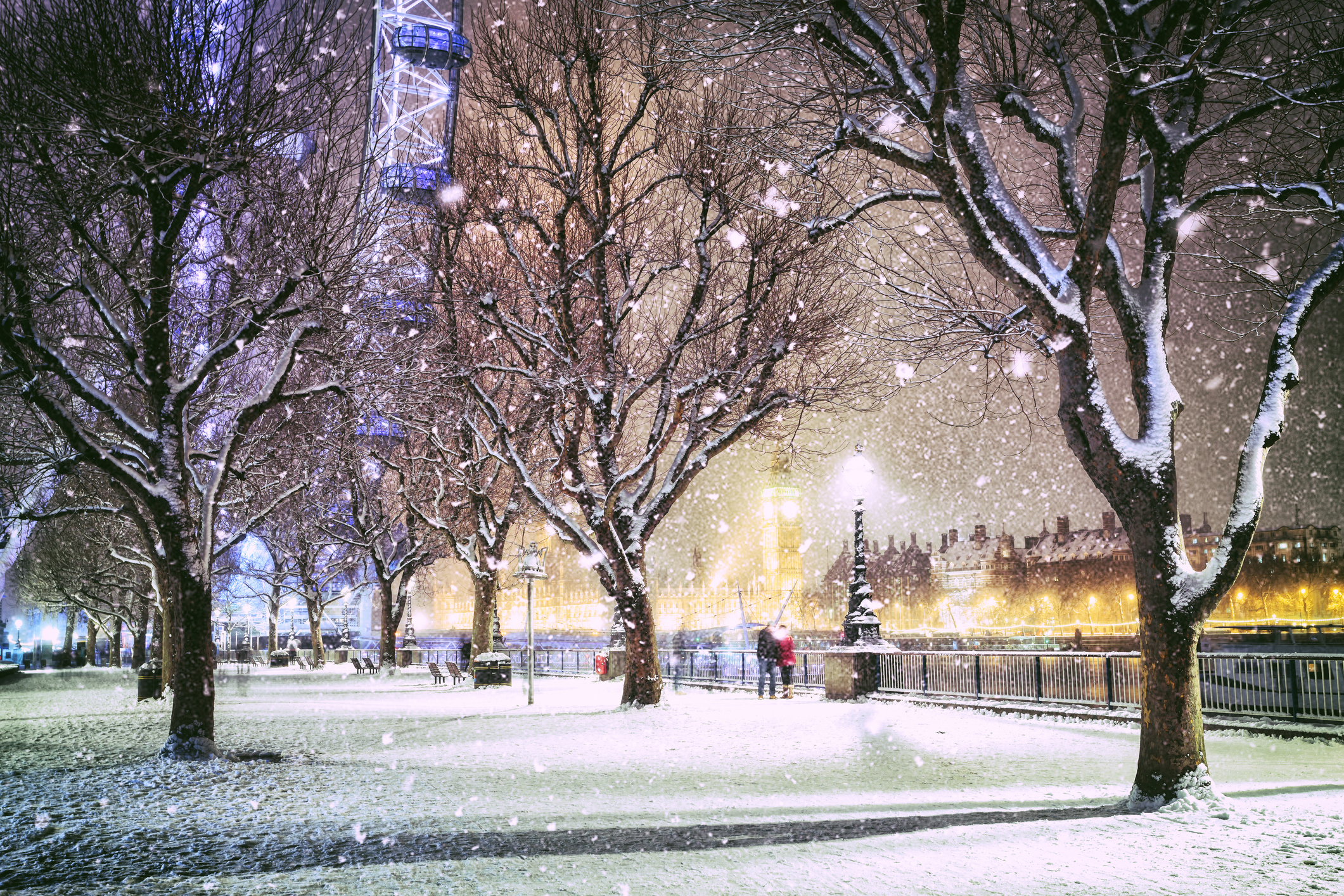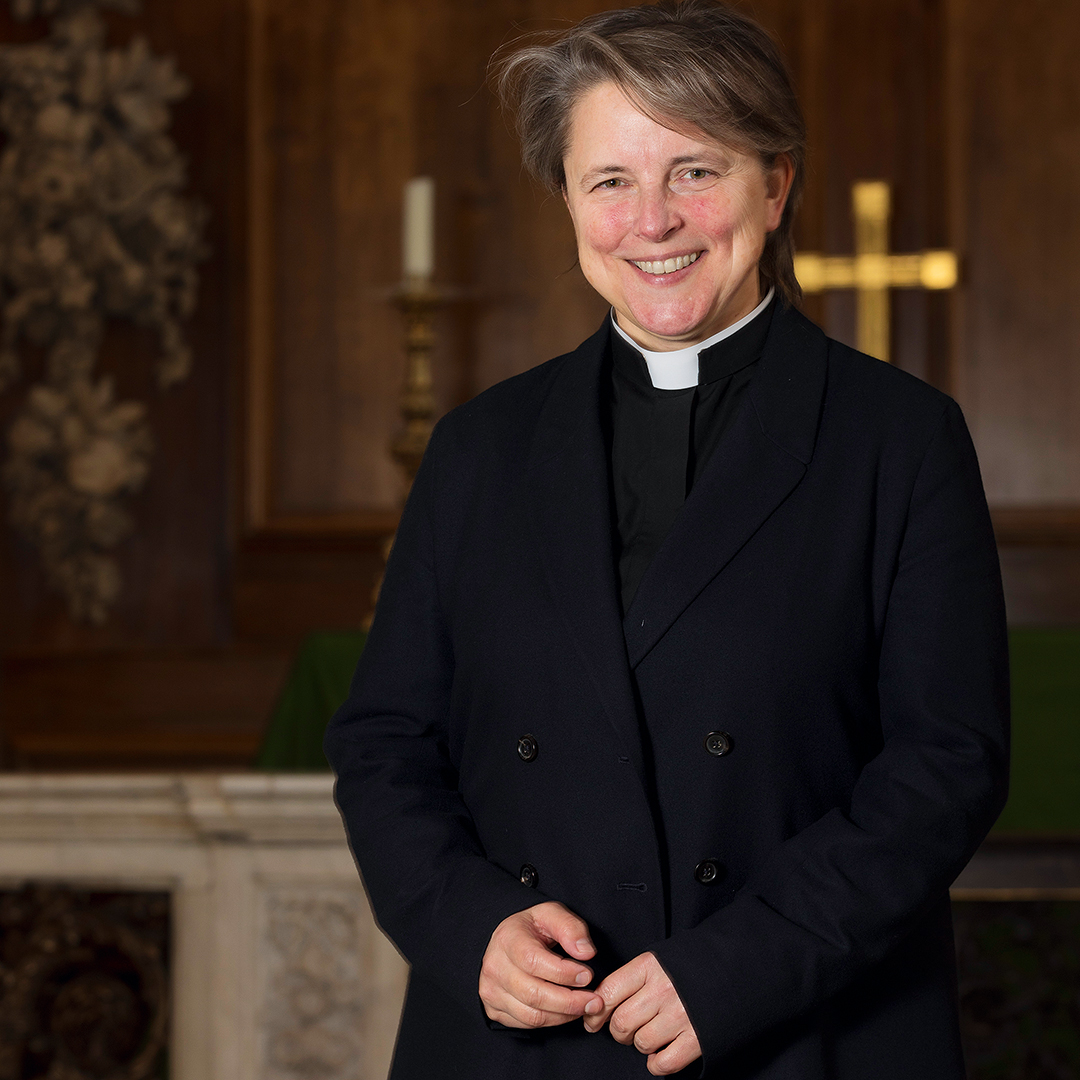The Country Life Christmas message, by the Revd Lucy Winkett
As many of us celebrate a simpler Christmas, the Reverend Lucy Winkett is moved by the generosity of those often dealing with their own difficult circumstances and stresses that giving someone your time can be a great gift, too.


Exquisite houses, the beauty of Nature, and how to get the most from your life, straight to your inbox.
You are now subscribed
Your newsletter sign-up was successful
Christmas is one way we measure the passage of time. It’s a punctuation moment in the year and we find ourselves remembering that it’s the first Christmas in this house or that it was the last Christmas with her or him. Nostalgia plays a large part in our celebrations as adults: it is a set of rituals to return to, which anchor us somehow, especially if the memories are happy ones.
In my role as Rector of St James’s Church, Piccadilly, in central London, I watch the run-up to Christmas take a particular turn each year. At the heart of the West End, our parish is full of bars, restaurants and shops, all advertising Christmas parties from October onwards. It was very odd being in central London during lockdown or restricted Christmases, when the lights were on and the decorations were up, but the streets were deserted. There was a special bleakness about the city during that time.
If I’m honest, there hasn’t been a return to a pre-pandemic Christmas atmosphere, although the same lights and decorations are on this year. There are particularly spectacular angels that fly down Jermyn Street and Piccadilly, but the crowds hurrying by underneath feel different: a bit more thoughtful somehow, less hedonistic and a little more, well, fragile. As this year’s John Lewis advertisement — with its focus on children in care — suggests, society is thinking about deeper themes, beyond the determination to have a good time.
"The younger generations can see that a throwaway culture harms the planet — fast-fashion clothing may raise eyebrows if unwrapped on Christmas Day"
I see much of this at St James’s. One of the striking moments of this winter was an exchange we had in the run-up to the festive season. Every week, we host a hot meal in the church for people going through homelessness or on low incomes. It’s often a lively and chatty evening: the conversations I’ve had with our guests range from politics to history, music, family. One of the most animated was an argument about the 17th-century English Civil War and the merits (or otherwise) of the actions of Oliver Cromwell. As our Wren church was consecrated in 1684, we were in the right place to be discussing the aftermath of the only 11 years of Republic that England has had and the debate went long into the evening.
Another time, we were collecting donations for our local food bank, when one of our homeless guests turned up with an offering. I am ashamed to say that I was rather too surprised that this had happened. Really, I shouldn’t have been: people are generous and kind, despite strikingly difficult circumstances. Yet this was such a remarkable gesture, I felt humbled by it. It was a moving example of gift-giving that put all my prospective shopping to shame. Of course, I want to live in a city that has neither food banks, nor people sleeping on the streets. But at a time of great hardship for many and great anxiety for most, this impulse to give a gift to someone else moved me beyond words.

This is one of the ways in which I think that the message of Christmas makes sense in a secularised society. For Christians, the celebration focuses on the astonishing gift that God gives: of life itself, of wonder and miracle, light and hope. This is expressed in the birth of Christ: a unique and irreplaceable human life who showed us what God is like, but also, perhaps more challengingly, showed us what it could be like to be human. I think that within all human beings, practising Christian or not, there is the deep impulse to give. Not only to buy presents, but to give, sometimes, ourselves, our time, our love or our commitment. It’s implanted deep within us as part of what human beings do.
It’s also affecting our approach to work, particularly among younger people who appear to seek demonstrable purpose — especially social purpose — in their jobs, as I recently found out at a meeting with business leaders. Attention to environmental and modern-day slavery issues is notably strong and these concerns are also shaping the way we shop and give at Christmas. The younger generations can see that a throwaway culture harms the planet — fast-fashion clothing may raise eyebrows if unwrapped on Christmas Day.
Exquisite houses, the beauty of Nature, and how to get the most from your life, straight to your inbox.
But raising these concerns doesn’t have to reduce the fun or dampen the celebrations.Staple gifts of soap, tea, candles, clothes, jewellery, books and electronic gadgets can all be kind to people and the planet, if chosen carefully. So, perhaps this Christmas might be a simpler, more thoughtful one, expressing the sort of empathy and imagination shown by our homeless guest, not only for other people, but for the Earth, and making every gift, however simple, more beautiful, because it’s given with love.
The Revd Lucy Winkett is the Rector of St James’s Church, Piccadilly, London W1. Formerly a professional soprano, she is a long-standing contributor to ‘Thought for the Day’ on BBC Radio 4’s ‘Today’ . The church is raising funds to repair and re-use its buildings in an environmentally sensitive way, honouring its post-war history while adapting, re-landscaping, celebrating and cherishing the historic green space and architectural heritage. To donate to the St James’s Wren Project, visit www.sjp.org.uk/donate/the-wren-project
Country Life is unlike any other magazine: the only glossy weekly on the newsstand and the only magazine that has been guest-edited by His Majesty The King not once, but twice. It is a celebration of modern rural life and all its diverse joys and pleasures — that was first published in Queen Victoria's Diamond Jubilee year. Our eclectic mixture of witty and informative content — from the most up-to-date property news and commentary and a coveted glimpse inside some of the UK's best houses and gardens, to gardening, the arts and interior design, written by experts in their field — still cannot be found in print or online, anywhere else.
